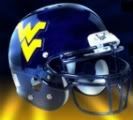Post by elp525 on Mar 11, 2011 8:19:40 GMT -5
March 10, 2011
By Dave Hickman
The Charleston Gazette
MORGANTOWN - It was roughly 15 minutes after West Virginia's Big East tournament ended before it had a chance to begin late Wednesday night when, in a largely silent locker room, Cam Thoroughman could pretty much guess what his next few days would entail.
It will all center around the mood of Bob Huggins after the Mountaineers laid an egg in a 67-61 loss to Marquette at Madison Square Garden.
"Probably not too good,'' Thoroughman said when asked how he figured his coach would react to the loss. "Maybe we'll have a day or two to rest and then come back in there with not a very happy guy.''
Indeed, the Mountaineers could have made life significantly easier for themselves had they simply played to their potential - or even in the neighborhood of their potential - in the Big East tournament. They did so only in short spurts.
For the most part, though, West Virginia played sloppily with the ball, had more defensive breakdowns than in the previous four games combined and now face the prospect of heading into the NCAA tournament next week not on a high, but once again fighting to figure out what went wrong.
Yes, with this team it only takes one game like that to skew the perception.
That's because this is a group that has no real stars or outstanding playmakers, so if they aren't executing and getting every ounce of effort they can look completely overmatched.
When the Mountaineers go through a run of five games like they did at the end of the regular season, beating Notre Dame, Connecticut and Louisville along the way, it illustrates what can be accomplished even without superior talent. Everyone looks at this team and thinks, wow, look at what teamwork and effort can accomplish.
But then when the same group isn't on its game, the chorus is, wow, these guys just aren't that good.
The truth, of course, probably rests somewhere in between, but the bottom line is still the same: Some nights WVU can be very good and others very average.
How does that bode for WVU in the NCAA tournament that, for all practical purposes, begins Sunday night when the brackets are announced and work begins?
Well, that's no easier to predict than was the outcome of West Virginia's trip to the Big East tournament. This is a team that could have won it all or won nothing.
This week it was nothing. Next week, who knows?
nn
The bracket predictions for West Virginia changed only slightly with Wednesday night's loss, but even slight changes in a complex bracket can carry great significance.
And this slight change comes with a delicious twist.
Both Joe Lunardi of ESPN and Jerry Palm, writing for cbssportsline.com, dropped the Mountaineers from a fifth seed to a sixth seed in their Thursday bracket projections. Both still had West Virginia playing at a first-round site on this side of the country, one in Tampa, Fla., and the other in Charlotte, N.C.
Here's the twist: They both also now have WVU matched up with the same No. 11 seed in the first round. It's Michigan.
Yeah. John Beilein's Michigan.
OK, so the chances of those guys being right isn't very good. Face it, they do a pretty good job of predicting the field, usually hitting about 95 percent of the entrants. They even get the seeds right more often than not.
But neither ever brags about how many specific matchups they had right, because that's usually asking a bit too much.
Still, if West Virginia does wind up as a No. 6 seed and Michigan does manage to make it into the field (the final at-large teams in are usually 11 and 12 seeds, but the Wolverines might need a win over Illinois today to safely secure a spot), at least the numbers line up for a potential matchup.
Again, so much can change over the remaining three days of play to alter both the field and the seeds, but because it makes for interesting speculation, here's what Lunardi and Palm had on Thursday:
Lunardi's No. 6 seed for WVU was in the East Regional (at Newark, N.J.), with the first-round site being Tampa. His potential second-round matchup for WVU would be one with a huge fan following there, third-seeded Florida. The top two teams in his East region are top-ranked Ohio State and Notre Dame.
Palm's No. 6 seed for WVU was in the West Regional (Anaheim, Calif.), with the first-round site as Charlotte. His potential second-round game is also with a local favorite, third-seeded North Carolina, while the top two seeds are Notre Dame and San Diego State.
By the way, West Virginia's RPI dropped from No. 15 to No. 18 after Wednesday's loss and could go up or down a few positions, but it will certainly remain in the Top 25 with the nation's second- or third-toughest schedule.
nn
Just so you know, the four NCAA regionals this year are in Newark (East), New Orleans (Southeast), San Antonio (Southwest) and Anaheim (West). For West Virginia, the closest first- and second-round sites are in Cleveland, Washington and Charlotte. The other early sites are Tampa, Chicago, Denver, Tulsa, Okla., and Tucson, Ariz.
The games in Washington, Tampa, Denver and Tucson are Thursday-Saturday games. The others are Friday-Sunday matchups.
Remember, the site of the first-round games has virtually nothing to do with the region a team is in or geography as a whole. A team can be in the East Regional and play first-round games in Chicago with three other East teams and four teams from the West Regional.
It's all about keeping as many teams close to home as possible, but that begins with the highest seeds and works down, so a fifth or sixth seed is guaranteed nothing.
By Dave Hickman
The Charleston Gazette
MORGANTOWN - It was roughly 15 minutes after West Virginia's Big East tournament ended before it had a chance to begin late Wednesday night when, in a largely silent locker room, Cam Thoroughman could pretty much guess what his next few days would entail.
It will all center around the mood of Bob Huggins after the Mountaineers laid an egg in a 67-61 loss to Marquette at Madison Square Garden.
"Probably not too good,'' Thoroughman said when asked how he figured his coach would react to the loss. "Maybe we'll have a day or two to rest and then come back in there with not a very happy guy.''
Indeed, the Mountaineers could have made life significantly easier for themselves had they simply played to their potential - or even in the neighborhood of their potential - in the Big East tournament. They did so only in short spurts.
For the most part, though, West Virginia played sloppily with the ball, had more defensive breakdowns than in the previous four games combined and now face the prospect of heading into the NCAA tournament next week not on a high, but once again fighting to figure out what went wrong.
Yes, with this team it only takes one game like that to skew the perception.
That's because this is a group that has no real stars or outstanding playmakers, so if they aren't executing and getting every ounce of effort they can look completely overmatched.
When the Mountaineers go through a run of five games like they did at the end of the regular season, beating Notre Dame, Connecticut and Louisville along the way, it illustrates what can be accomplished even without superior talent. Everyone looks at this team and thinks, wow, look at what teamwork and effort can accomplish.
But then when the same group isn't on its game, the chorus is, wow, these guys just aren't that good.
The truth, of course, probably rests somewhere in between, but the bottom line is still the same: Some nights WVU can be very good and others very average.
How does that bode for WVU in the NCAA tournament that, for all practical purposes, begins Sunday night when the brackets are announced and work begins?
Well, that's no easier to predict than was the outcome of West Virginia's trip to the Big East tournament. This is a team that could have won it all or won nothing.
This week it was nothing. Next week, who knows?
nn
The bracket predictions for West Virginia changed only slightly with Wednesday night's loss, but even slight changes in a complex bracket can carry great significance.
And this slight change comes with a delicious twist.
Both Joe Lunardi of ESPN and Jerry Palm, writing for cbssportsline.com, dropped the Mountaineers from a fifth seed to a sixth seed in their Thursday bracket projections. Both still had West Virginia playing at a first-round site on this side of the country, one in Tampa, Fla., and the other in Charlotte, N.C.
Here's the twist: They both also now have WVU matched up with the same No. 11 seed in the first round. It's Michigan.
Yeah. John Beilein's Michigan.
OK, so the chances of those guys being right isn't very good. Face it, they do a pretty good job of predicting the field, usually hitting about 95 percent of the entrants. They even get the seeds right more often than not.
But neither ever brags about how many specific matchups they had right, because that's usually asking a bit too much.
Still, if West Virginia does wind up as a No. 6 seed and Michigan does manage to make it into the field (the final at-large teams in are usually 11 and 12 seeds, but the Wolverines might need a win over Illinois today to safely secure a spot), at least the numbers line up for a potential matchup.
Again, so much can change over the remaining three days of play to alter both the field and the seeds, but because it makes for interesting speculation, here's what Lunardi and Palm had on Thursday:
Lunardi's No. 6 seed for WVU was in the East Regional (at Newark, N.J.), with the first-round site being Tampa. His potential second-round matchup for WVU would be one with a huge fan following there, third-seeded Florida. The top two teams in his East region are top-ranked Ohio State and Notre Dame.
Palm's No. 6 seed for WVU was in the West Regional (Anaheim, Calif.), with the first-round site as Charlotte. His potential second-round game is also with a local favorite, third-seeded North Carolina, while the top two seeds are Notre Dame and San Diego State.
By the way, West Virginia's RPI dropped from No. 15 to No. 18 after Wednesday's loss and could go up or down a few positions, but it will certainly remain in the Top 25 with the nation's second- or third-toughest schedule.
nn
Just so you know, the four NCAA regionals this year are in Newark (East), New Orleans (Southeast), San Antonio (Southwest) and Anaheim (West). For West Virginia, the closest first- and second-round sites are in Cleveland, Washington and Charlotte. The other early sites are Tampa, Chicago, Denver, Tulsa, Okla., and Tucson, Ariz.
The games in Washington, Tampa, Denver and Tucson are Thursday-Saturday games. The others are Friday-Sunday matchups.
Remember, the site of the first-round games has virtually nothing to do with the region a team is in or geography as a whole. A team can be in the East Regional and play first-round games in Chicago with three other East teams and four teams from the West Regional.
It's all about keeping as many teams close to home as possible, but that begins with the highest seeds and works down, so a fifth or sixth seed is guaranteed nothing.





